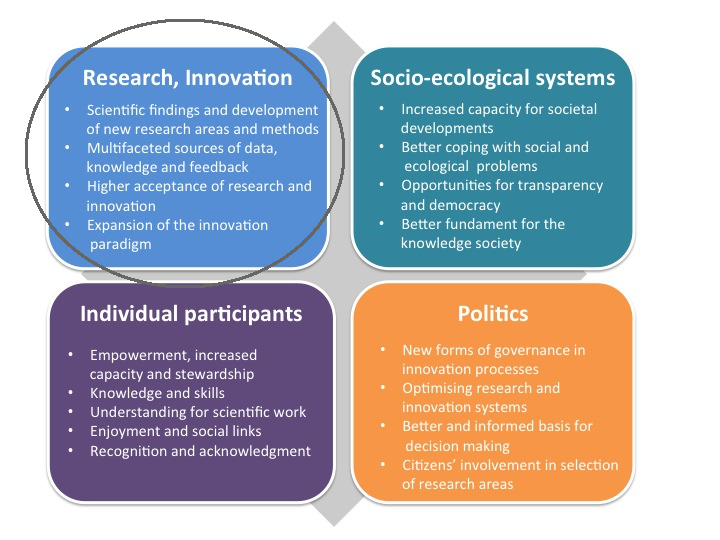Scientific outcomes are by far the most important benefit of
those citizen science projects that are driven by scientific
institutions and have the answering of research questions in their
focus.
The number of academic publications is the most frequent metric on this level and highest in the fields of ornithology, astronomy, meteorology and microbiology, and especially in citizen science projects that have developed digital platforms for volunteer contribution. This metric is also regularly collected by citizen science projects so far.
But we find more and more scientific institutions that also stress the importance of communicating to and engaging with the general public. Here citizen science is a highly relevant approach to reach these goals and especially individual scientists can benefit from knowledge increases related to
The collaboration with citizens can also lead to the development of new scientific methods, the identification of new leading questions for further research or the establishment of new collaborations amongst actors.
All these aspects can be considered when evaluating the outcomes for individual scientists and their institutions.
